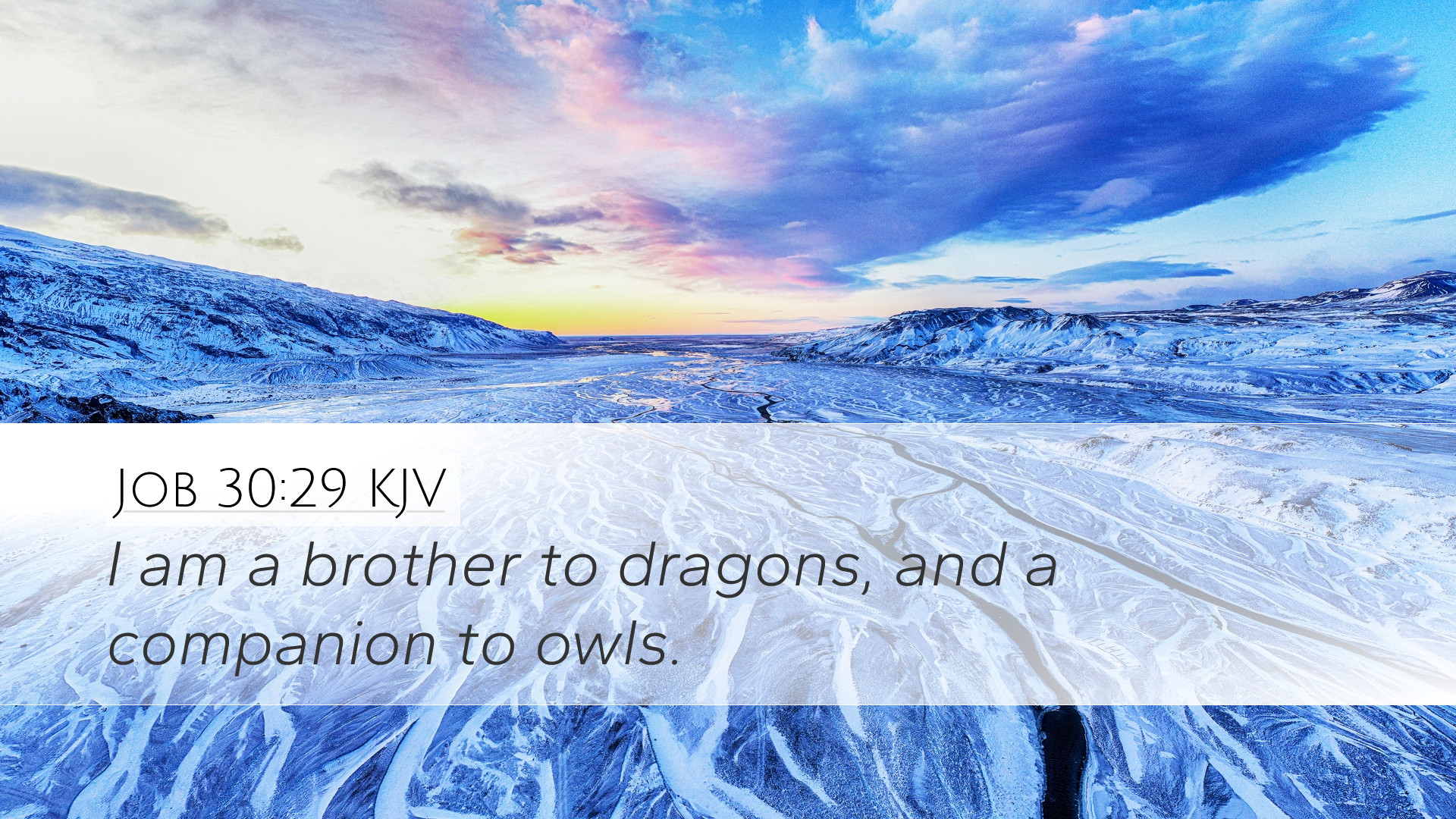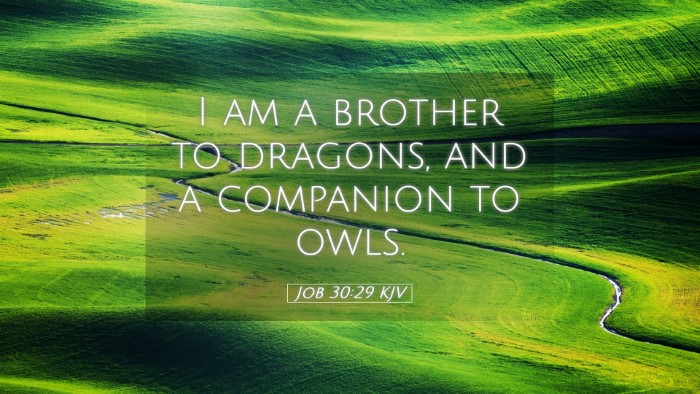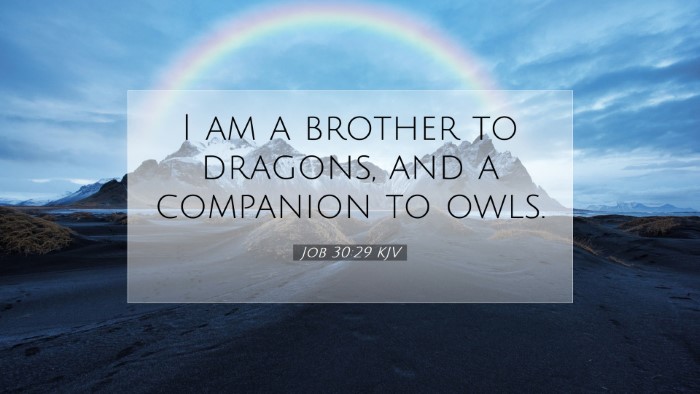Commentary on Job 30:29
Job 30:29 states, "I am a brother to dragons, and a companion to owls." This verse encapsulates the depth of Job's desolation and despair during his suffering. In this commentary, we will explore the layers of meaning within this verse, drawing from various public domain commentaries.
Contextual Background
Job finds himself in a dire situation, beset by personal loss, affliction, and the scorn of those who once admired him. His words in this chapter reflect on his previous life of prosperity contrasted with his current state of anguish.
Interpretation of "Brother to Dragons"
Matthew Henry comments on the imagery used in this verse, emphasizing the loneliness and isolation Job feels. Dragons, often understood to symbolize fearsome and destructive forces, represent the depths of despair Job has reached. In his mind, Job is not in fellowship with human beings but finds companionship only with creatures that evoke a sense of terror and desolation.
- Isolation: Henry notes that Job equates himself with terrifying creatures to highlight his utter abandonment. He feels he is distanced from all friends and family, making dragons his only companions.
- Symbolism of Dragons: The 'dragons' may also allude to the formidable challenges Job faces, foreboding the dangers that loom over him.
Companion to Owls
In the second part of the verse, Job mentions being a "companion to owls". Albert Barnes provides illuminating commentary on owls, which are often associated with loneliness and desolation in the Biblical context. Owls thrive in darkness and solitude, further solidifying Job’s state of despair.
- Loneliness of the Owl: Barnes explains that owls symbolize a life shunned by light and company, mirroring Job's alienation from the society he once belonged to.
- Nights of Mourning: The presence of owls also suggests Job's sleepless nights filled with sorrow, emphasizing the emotional and spiritual darkness engulfing him.
Contrasts with Previous State
Adam Clarke discusses how Job contrasts his present condition with his former glory, where he was esteemed and held in high regard. The shift from being a respected figure to one perceived as a pariah exemplifies the severity of his trials. Such shifts are addressed throughout the Book of Job and demonstrate the volatility of human fortune.
- Past Honor: Clarke points out that Job's previous relationships formed a community of support, making his current isolation all the more painful.
- Human Dependency: This duality serves to remind readers of the ephemeral nature of human esteem and the ultimate dependency on God’s grace and mercy.
Theological Reflections
Throughout Job's lament, there are profound theological implications that emerge. Job’s identification with dragons and owls is emblematic of his relationship with God amid suffering.
- God's Silence: The silence of God is deafening in Job's life, leading him to feel forsaken and alone, much like the creatures he describes.
- Existential Reflection: This verse invites deeper reflection about the nature of community, isolation, and the human need for connection during tribulations.
Lessons for Believers
This poignant verse teaches believers about empathy and understanding in times of suffering.
- Empathy in Suffering: Pastors and theologians can draw upon Job’s experience to cultivate a heart of compassion for those experiencing despair.
- The Power of Community: It underscores the vital importance of community during trials—where isolation can lead to despair, a supportive community can be a source of hope.
Conclusion
In Job 30:29, we encounter the raw expression of human suffering. Job’s metaphorical companions, dragons and owls, evoke a deep sense of loneliness and despair, reflecting the reality of his suffering. His poignant imagery serves both to lament his current state and to remind readers of the fragility of human relationships in times of distress. The insights from Matthew Henry, Albert Barnes, and Adam Clarke resonate as reminders for us to remain steadfast in faith and supportive of one another in our journeys of suffering and sorrow.


